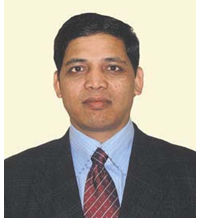Suaahara-II (Good Nutrition) Project
Suaahara-II (Good Nutrition) Project
Suaahara II is a five-year (2016-2021), integrated program dedicated to improving the health and nutrition status of women and children who fall within the 1,000 days period, from conception until a child reaches 24 months of age. This period is recognized as the crucial timeframe during which nutritional interventions have optimal impact on child growth and development. In selected districts, Suaahara II has been supporting the Government of Nepal (GON) in expanding health and nutrition services that target adolescents. In particular, the project is addressing anemia, reproductive health, menstrual hygiene, and food diversity, social attitudes towards delayed marriage and pregnancy, and health service utilization. Suaahara II is working in collaboration with existing local level government and private sector and groups. BASE (Backward Society Education) is a local implementing partner in Dang district for Suaahara-II.
Objectives of Suaahara II program
- Promote key Maternal, Infant and Young Child Nutrition (MIYCN) practices through an intensive behavior change strategy, including interpersonal communication activities, radio programs, and the use of mobile technology at the community level.
- Expand coverage of the community-based integrated management of newborn and childhood illness program and strengthen growth monitoring and promotion at outreach clinics and health facilities.
- Enhance clean water, sanitation, and hygiene conditions of household facilities and establish private sector linkages to promote WASH technologies.
- Improve consumption of nutritious food through increased production, improved post-harvest storage, and processing diverse nutritious food, especially for women farmers from disadvantaged groups.
- Strengthen coordination on health and nutrition between government and other stakeholders through the Food Security and Nutrition Coordination Committee, Nepal Nutrition Group, Nutrition Technical Committee, Safe Motherhood sub- committee, Family Planning Sub -committee, and Reproductive Health Coordination Committee.
- Strengthen the technical, managerial, operational capacity of health and non-health sector stakeholders at the district, municipal and ward levels to enhance MSNP implementation.
Key activities
- Program Advisory Committee (DPAC) meetings.
- Make specific visit to FCHV led HMG for conducting a food demonstration, separate from the calendar-focused or SATH visits.
- Conduct 3 key life events (pregnancy, birth, and 6 months) for each 1000-day family, as needed.
- Identify children with Moderate Acute Malnutrition (MAM) Sever Acute Malnutrition (SAM) cases and counsel them on child feeding and care and trigger family members to engage with Suaahara II and GoN platforms, especially HMGs to discuss with other families and FCHV.
- Conduct total sanitation (e.g. hand washing, PA vial, PoU options, and toilet use) triggering and sensitization activities in community platforms.
- Provide training and follow-up support to elected bodies and WASH CC.
- Conduct review meetings with HF in charge and IMAM focal persons from all OTCs and NRH to strengthen NACS/IMAM services.
- Support on participatory interaction meeting and on-site coaching (post training follow-up) at health facilities including OTCs to enhance knowledge and skills of health workers on CB-IMNCI, MIYCN, NACS, IMAM, PHC-ORC management and to conduct RDQA on CB-IMNCI and/or nutrition.
- Conduct review meeting with district and municipality-level government and non-government agricultural and livestock stakeholders.
- Provides/Support an on-site coaching and technical support visits, including post-training follow-up (e.g. business plan, savings and credit) to all trained local resource persons (LRP) and brooding centers, based on minimum standards checklist.
- Roll out “Sustaining nutrition and health interventions at local level” workshops at municipal-level to advocate for nutrition and guide local-level action plans for improved/sustained implementation of both nutrition-specific and nutrition-sensitive activities.
- Facilitate the regular functioning of meetings municipal-level Nutrition and Food Security Steering Committee (NFSSC).
Key out comes
- Reduced stunting, underweight, and wasting prevalence among children under five in the district.
- Improved household health and nutrition behaviors.
- Increased use of quality maternal, newborn, and child health services; family planning services.
- Improved water, sanitation and hygiene behavior and practices.
- Increased consumption of diverse and nutritious foods by women and their families.
- Improved the food security of households.


